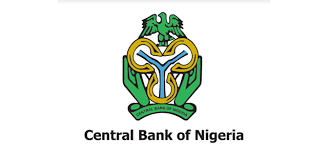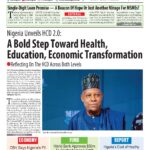The Central Bank of Nigeria (CBN), in partnership with the Nigerian Educational Research and Development Council (NERDC), is set to integrate financial literacy into the school curriculum for junior and primary schools nationwide.
This initiative aims to cultivate a culture of financial awareness and savings among young Nigerians.
Mr. Ibrahim Yahaya, the Acting Head of the Consumer Protection Department at the CBN, disclosed this development recently during the World Savings Day celebration held at the Federal Science and Technical College in Orozo, Abuja.
Speaking with journalists, Mr. Yahaya highlighted the significant progress made in collaboration with NERDC, the body responsible for curriculum development in Nigeria.
“We have had a productive collaboration with NERDC, which oversees curriculum development in Nigeria. The curriculum has been finalized and is set to be launched. Once that is completed, it will be incorporated into the school syllabus for junior and primary levels. This will cover topics on savings, investments, and other essential financial information for our population,” said Mr. Yahaya.
He also said that while the formal unveiling of the curriculum is forthcoming, both institutions are working diligently to expedite the process. “The school intervention, especially at this time when we celebrate World Savings Day, is crucial. We are targeting young minds to instil the importance of savings, which is vital for economic development everywhere. The credit banks and lending institutions provide comes from our deposits, which are part of savings,” he elaborated.
Mr. Yahaya reiterated the importance of nurturing a culture of saving and investment from an early age to foster economic growth and stability. He pointed out that teaching children these financial principles will contribute significantly to their personal development and the overall economy.
In March 2024, the CBN indicated its commitment to ensuring that the National Financial Literacy Curriculum would be ready for inclusion in schools’ academic programs by October. The latest data from the CBN reflects the growing success of financial inclusion initiatives in Nigeria, with total financial inclusion levels increasing from 65 percent in 2022 to 67 percent in 2023. This represents a rise from 68.8 million to 69.2 million financially included individuals. Correspondingly, the number of financially excluded people fell from 38.2 million (36 percent) to 33.9 million (32 percent).
A detailed breakdown shows that the number of banked individuals rose from 47.7 million to 54.2 million, while five percent of the total figure, or 5.3 million people, gained access to financial services through formal channels. Additionally, 8.6 million individuals (11 percent) were brought into the financial system via informal means.
The integration of financial literacy into the school curriculum is poised to bridge knowledge gaps and prepare the next generation for a future where they are financially informed and capable of making sound economic decisions.





